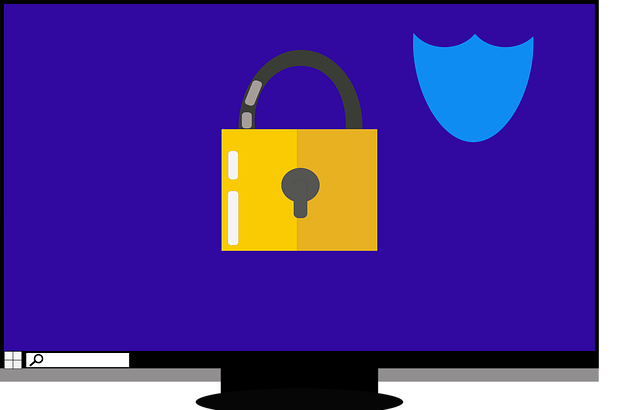Exploring Ubuntu’s pivotal role within the cybersecurity landscape, this article delves into its integral function in fortifying modern security infrastructure. We will unravel the core security features that distinguish Ubuntu as a robust platform for safeguarding digital assets. Through compelling case studies, witness how leading cybersecurity firms leverage Ubuntu’s capabilities to outmaneuver emerging threats. The discussion extends to the synergistic integration of Ubuntu with a suite of security tools, enhancing threat detection and prevention. As we peer into the future, the potential trajectory of Ubuntu in shaping next-generation security solutions promises to be as dynamic and secure as the systems it protects. Join us on this journey to understand why Ubuntu stands out in the cybersecurity domain.
- Ubuntu's Role in Modern Security Infrastructure
- Core Security Features of Ubuntu
- Case Studies: Ubuntu in Action for Cybersecurity Firms
- Benefits of Using Ubuntu for Threat Detection and Prevention
- Integration of Ubuntu with Other Security Tools
- Future of Ubuntu in the Realm of Security Solutions
Ubuntu's Role in Modern Security Infrastructure

Ubuntu, a Linux distribution renowned for its robustness and security features, has established itself as a cornerstone in modern security infrastructures. Its open-source nature facilitates transparency and community-driven improvements, which are critical for maintaining a high level of security vigilance. Security professionals appreciate Ubuntu’s regular updates and long-term support cycles that ensure systems remain secure against evolving threats. The distribution’s minimalist approach and the ability to customize its kernel for different environments make it highly adaptable to various security demands, from personal data protection to critical infrastructure safeguarding. Furthermore, Ubuntu’s strong package management system allows for the easy deployment of trusted applications, while its default minimal install minimizes potential attack vectors. This commitment to security and adaptability has earned Ubuntu a reputation as a reliable choice for organizations prioritizing cybersecurity measures.
Incorporating Ubuntu into security-centric environments is not without its strategic advantages. Its active development community and supportive corporate backing mean that vulnerabilities are often swiftly addressed, and best practices are disseminated widely. Additionally, Ubuntu’s support for a diverse array of hardware architectures ensures that security solutions can be deployed across a wide range of devices, from edge computing units to servers. The use of Ubuntu in security companies is indicative of its role as a foundational element in creating secure and reliable systems that are capable of withstanding the complex threats present in today’s digital landscape.
Core Security Features of Ubuntu

Ubuntu, a Linux distribution known for its robustness and security features, has established itself as a preferred choice in the realm of cybersecurity. The core security features of Ubuntu are underpinned by its architecture, which is designed with multiple layers of protection. These include a permission system that offers granular control over user and group access to files and directories, effectively mitigating unauthorized data breaches. AppArmor, an advanced security module included in the default installation, provides additional confinement policies for restricted programs, preventing them from accessing sensitive areas of the system.
Furthermore, Ubuntu incorporates strong encryption mechanisms, such as disk-level encryption through tools like LUKS and full-disk encryption by default in its live images, ensuring that data remains secure even if the hardware is lost or stolen. The distribution also benefits from regular updates and security patches, which are delivered promptly to address emerging vulnerabilities. Ubuntu’s use of OpenSSH for secure remote access and PAM (Pluggable Authentication Modules) for flexible authentication mechanisms further enhance its security posture. These features collectively contribute to making Ubuntu a reliable and secure choice for security-conscious companies, providing them with a solid foundation to safeguard their operations against a myriad of cyber threats.
Case Studies: Ubuntu in Action for Cybersecurity Firms

Security firms operating within the cybersecurity landscape often seek robust and secure operating systems to safeguard sensitive data and maintain client confidentiality. Ubuntu, with its strong emphasis on security and regular updates, has become a popular choice for these entities. One case study illustrates a mid-sized cybersecurity firm that transitioned from a proprietary OS to Ubuntu LTS (Long Term Support) across all its systems. This shift was driven by the need for increased security features and improved performance. The firm reported a significant reduction in security incidents post-transition, attributing this improvement to Ubuntu’s regular security updates and the kernel’s robustness against various threats.
Another case study involves a leading cybersecurity company that utilizes Ubuntu as the foundation for its security solutions. This firm develops intrusion detection systems and endpoint protection software that are deployed globally. The choice of Ubuntu was informed by its active community, which provides a wide array of open-source tools and resources to enhance security capabilities. Additionally, the company leverages Ubuntu’s minimal footprint and stability in environments with resource constraints. The integration of AppArmor, a Linux kernel-based security module native to Ubuntu, has further fortified their solutions against potential exploits, demonstrating the practical application of Ubuntu in delivering cutting-edge cybersecurity defenses.
Benefits of Using Ubuntu for Threat Detection and Prevention

Ubuntu’s robust open-source platform provides a secure foundation for threat detection and prevention in security-centric environments. With its frequent updates and strong emphasis on security, Ubuntu offers real-time protection against emerging threats. The Linux distribution is renowned for its hardened kernel and default security configurations that minimize the attack surface, making it an ideal choice for organizations focused on cybersecurity. Moreover, Ubuntu’s extensive selection of pre-installed security tools, including intrusion detection systems like Snort and Suricata, allows for seamless integration into existing security infrastructures. These tools are complemented by the availability of additional software repositories that can be leveraged to deploy advanced threat detection mechanisms, such as signature-based detection, behavioral analysis, and anomaly detection, thereby enhancing an organization’s capability to proactively identify and mitigate potential security breaches. The flexibility and adaptability of Ubuntu ensure that security companies can maintain a high level of vigilance in their threat detection and prevention efforts, safeguarding their networks and systems from a myriad of cyber threats.
Integration of Ubuntu with Other Security Tools

Ubuntu, a Linux distribution renowned for its robustness and security features, has become a popular choice among security-focused organizations. Its integration with a variety of security tools is facilitated by a large ecosystem of open-source software, which allows for seamless compatibility with intrusion detection systems, firewalls, and endpoint protection solutions. The distribution’s support for tools like Snort for intrusion detection and Fail2Ban for protecting against brute force attacks underscores its adaptability to diverse security needs. Additionally, Ubuntu’s deployment models, such as the minimal server variant, ensure that only necessary packages are installed, reducing the attack surface and enhancing system hardening. This minimalistic approach, combined with the regular updates provided by Canonical, ensures that security patches are promptly disseminated, maintaining a secure environment for critical operations. The ability to run in containers using LXC (Linux Containers) or Docker further bolsters Ubuntu’s security profile, as it allows for workloads to be isolated and segmented, thus protecting against lateral movement within the network. This level of integration and customization makes Ubuntu a compelling choice for security-centric environments looking to maintain an effective security posture.
Future of Ubuntu in the Realm of Security Solutions

Ubuntu’s role in the security sector is poised for significant growth, as its open-source nature and robust ecosystem continue to attract companies seeking reliable and adaptable solutions. The Linux distribution, with its frequent updates and strong emphasis on security, has already established itself as a formidable player in cybersecurity. Ubuntu’s commitment to security is evident in its regular release cycle, which includes timely patches for vulnerabilities, and its active community that contributes to a broad range of security tools and applications. As cyber threats evolve, the adaptability of Ubuntu allows it to integrate cutting-edge security measures swiftly. This agility makes it an ideal platform for security solutions that require both stability and up-to-date protection against sophisticated attacks.
In the future, Ubuntu’s potential in the realm of security solutions is vast, with implications reaching from personal devices to enterprise networks. The distribution’s minimalist approach and clean system architecture lend themselves well to being a secure foundation for specialized security applications. Moreover, Ubuntu’s ability to run on a multitude of hardware platforms, including ARM-based systems, positions it at the forefront of security in emerging markets and Internet of Things (IoT) environments. With ongoing advancements in AI and machine learning, integrated within the Ubuntu ecosystem, there is a clear trajectory towards smarter, more predictive security systems that can preemptively address vulnerabilities before they are exploited. This forward-looking integration will undoubtedly solidify Ubuntu’s position as a key contributor to the future of security solutions.



